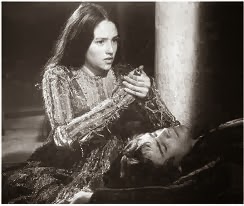Man:
The myth of Oedipus is ancient, and has been passed along for thousands of years. After this long, it is impossible to tell is Oedipus ever actually lived, or if his story is simply myth. If it was just a myth, it was probably told to stress the power of the gods and the Fates. The Fates made it so no one could ever run away from their destiny, and Oedipus tried to, but ended up falling right into their "trap."
The play Oedipus Rex, written by Sophocles, takes place completely after the myth. Oedipus has been married to his mother for 20 years and is ruling over his city. He has some kids with his mother, as well. As I have not read the play, I cannot discuss plot as of yet, but I look forward to reading it.
Myth:
Oedipus was the son of the king and queen of Thebes. He was given a prophecy that he would kill his father and marry his mother, so the king gives the baby to a poor man who is to dispose of the infant, but he takes pity on it and simply sends it to the neighboring city of Corinth, where the king and queen there take Oedipus in as their own. Once Oedipus becomes a young man, he hears his prophecy again and runs away from Corinth, trying to spare his adoptive parents. He encounters a man, his father, on the road to Thebes and kills him over an altercation, and then kills the dragon attacking Thebes, for which his prize is the widowed queen, his mother.
Sophocles was born in 496 BCE in Colonus, a village outside of Athens. He was very successful and skilled. He had a warrior's physique and was very good with war, music and poetry. He was very tied to Athens, serving as one of the commanders of the armed forces, and later as a financial consultant.
Aristotle
Aristotle is the last of the three Greek Philosophers, the other two being Socrates and Plato. He is said to have written 150 treatises in his 62-year life from 384-322 BCE. He had a great education and went to study under Plato when he was about 17, and was a brilliant student there. He made huge contributions to modern science by studying natural phenomena like earthquakes.
Tragedy:
Aristotle studies many topics, including the arts, and plays. He classified the type of play known as tragedy, and laid out specific things that always occur within these kinds of plays. He says that the order of events, the plot, must be complete with a beginning middle and end and a good cast of characters to support the different aspects of the plot (fear, joy, pity, drama, etc.) He also says the protagonist should be in the upper class and prosperous in order for his fall from grace to be more obviously and sad.
Aristotle's ideal plot structure. Copied by Freytag centuries later.
Hubris:
Hubris is the extreme pride or arrogance of a person. It is a greek word used a lot in greek tragedies, as hubris, according to Aristotle, is a hero's biggest flaw. He also says that it will get the hero killed and/or lead to his ultimate demise. Furthermore, this is how Aristotle classifies a tragic hero, because all tragic heroes have this deadly flaw.
Dramatic Irony
Dramatic Irony is a popular use of plot in tragedies, as in Romeo and Juliet. This idea occurs when the audience is aware of something important that one or more characters do not. This is supposed to fill the audience with anxiety, fear and frustration as the play progresses. This technique originated in Greece, and is very old and very effective.
Tiresias
Tiresias was a child of a man and a nymph, in Greek mythology. He served as a prophet of Apollo in Thebes for seven generations. He has many misadventures with the gods, including getting turned into a women for several years by Hera, and getting blinded by Athena. He also is featured in Oedipus Rex when he is called to give information about the king's killer.
Fate
In Ancient Greece, fate played a huge role in everyone's lives. They believed that their fate was set and it was unavoidable, yet many characters throughout Greece's history attempted to do so, and failed. This include Oedipus, when he runs away from his fake parents and runs right into his real parents where he fulfills his fate. Greeks had gods/spirits that determine the fates of people aptly called The Fates, who controlled the lives of people to an extent and cutting a string at the end of one's life.
Greek Theater
In Ancient Greece, plays were preformed in an amphitheater outdoors. They were designed very well and spectators in the very back row could here as well as the front-row viewers, without the use of microphones or any amplifier whatsoever. Performances were a public event, and everyone was allowed to see the plays. Many of the plays of the time were about myth and religion, teaching the powers of the gods and teaching of human flaws and tragic heroes, like Oedipus.











No comments:
Post a Comment